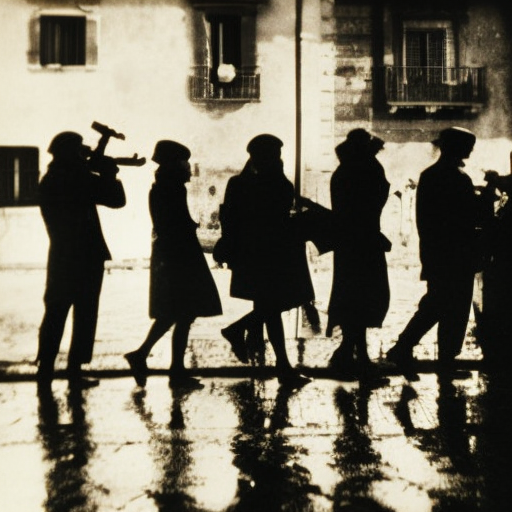Air Raid on Bari: A Devastating Attack during World War II
On December 2, 1943, the Italian port city of Bari experienced a devastating air raid during World War II. The attack, carried out by the German Luftwaffe, targeted the Allied forces’ shipping and supply facilities in the harbor. The raid resulted in the sinking of several ships, including the SS John Harvey, which was carrying a deadly cargo of mustard gas. The attack on Bari had significant consequences, both in terms of immediate casualties and the long-term impact on the war effort.
The Attack
The air raid on Bari began in the late afternoon, when a large number of German bombers approached the city. The Luftwaffe targeted the harbor area, where the Allies had established a major supply base. The attack caught the Allied forces off guard, as they had not anticipated such a large-scale assault. The bombers dropped a combination of high-explosive and incendiary bombs, causing widespread destruction and chaos.
Mustard Gas Exposure
One of the most devastating aspects of the air raid on Bari was the release of mustard gas from the SS John Harvey. The ship had been secretly carrying a stockpile of the chemical weapon, which was intended for use in retaliation if the Germans deployed chemical weapons first. When the ship was hit during the attack, the mustard gas was released into the air and water, causing immediate and long-term harm to those exposed.
The mustard gas exposure had a catastrophic impact on the victims. Many suffered severe burns, blindness, and respiratory problems. The true nature of the cargo was initially kept secret, which delayed proper medical treatment for those affected. The long-term effects of the exposure also proved to be significant, with many survivors experiencing ongoing health issues for years after the attack.
Consequences
The air raid on Bari had several immediate consequences. The attack resulted in the sinking of 17 ships, including several that were carrying vital supplies for the Allied forces. The destruction of the harbor facilities also severely disrupted the flow of supplies to the front lines, hampering the Allied war effort in Italy.
The release of mustard gas added another layer of complexity to the situation. The Allies were forced to deal with the immediate medical needs of the victims and the long-term consequences of the exposure. The incident also raised concerns about the Allies’ own use of chemical weapons and the potential for retaliation by the Germans.
Lessons Learned
The air raid on Bari served as a wake-up call for the Allies. It highlighted the vulnerability of their supply lines and the need for improved defensive measures. The incident led to a reassessment of the security and safety protocols in place at Allied ports and supply bases.
The attack also had a significant impact on the development of medical treatments for mustard gas exposure. The experiences of the victims in Bari provided valuable insights into the effects of the chemical weapon and helped guide future research and treatment strategies.
Conclusion
The air raid on Bari was a devastating event during World War II. The attack caused significant damage to the Allied forces’ shipping and supply facilities, resulting in the loss of vital resources. The release of mustard gas from the SS John Harvey added another layer of tragedy to the incident, causing immediate and long-term harm to those exposed. The attack on Bari served as a harsh lesson for the Allies, leading to improvements in defensive measures and medical treatments for chemical weapon exposure.












